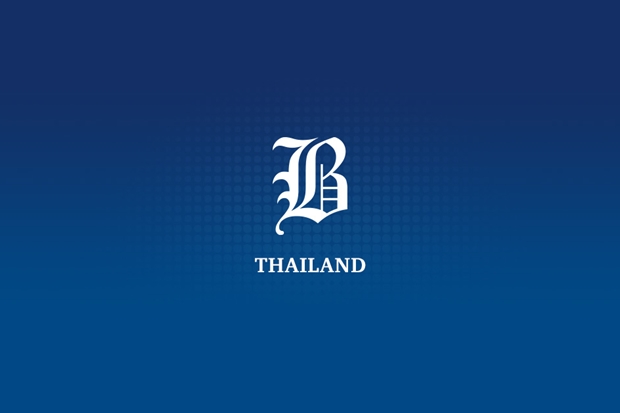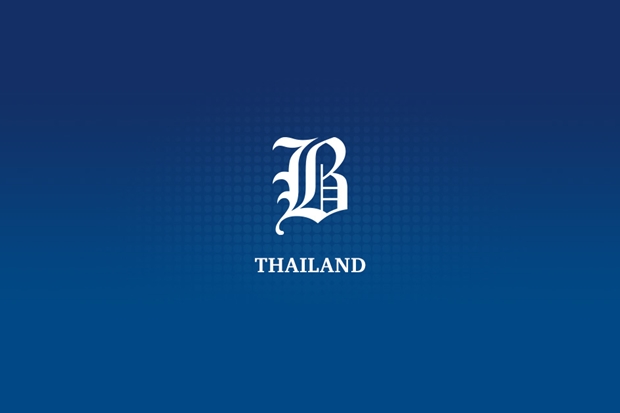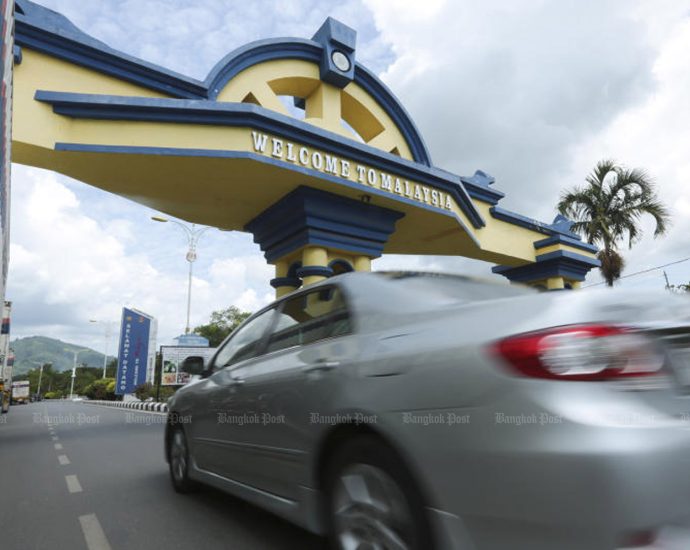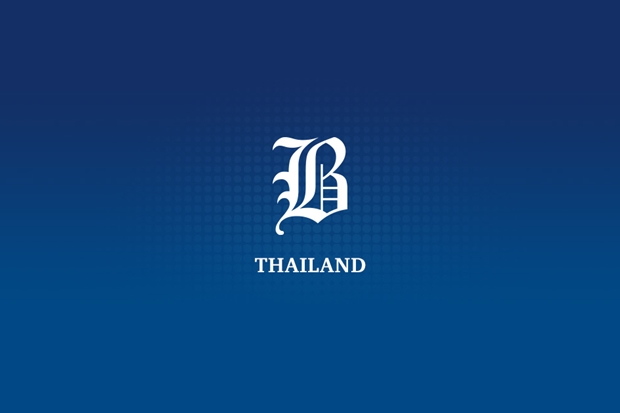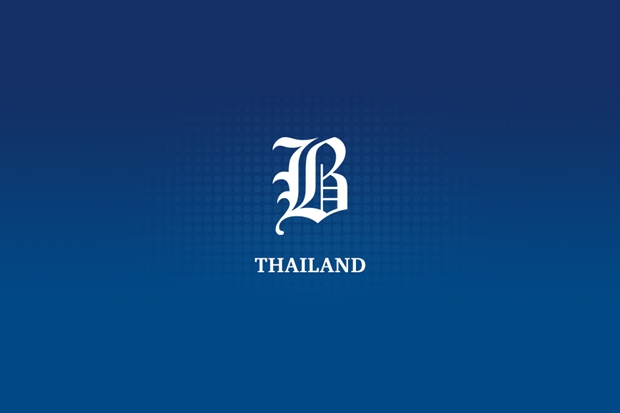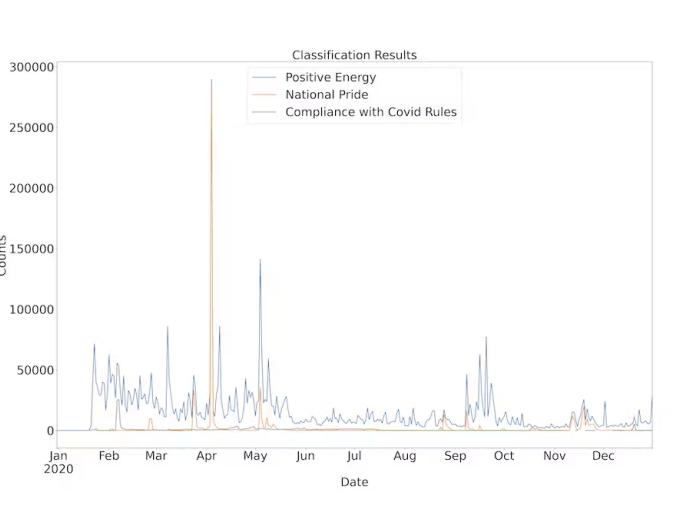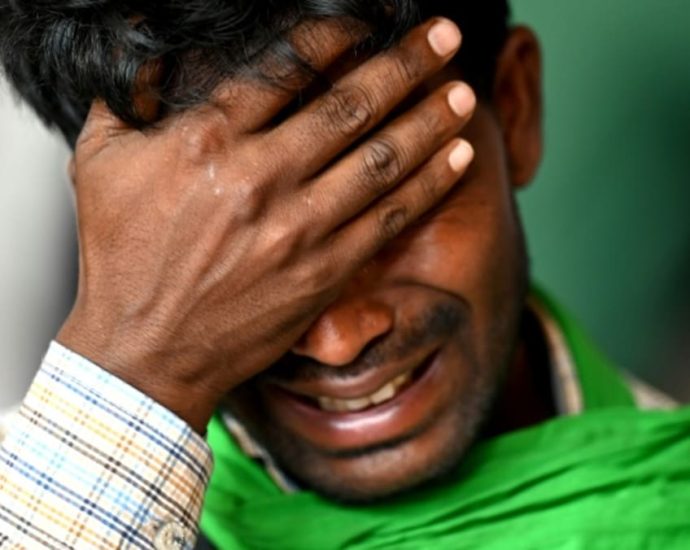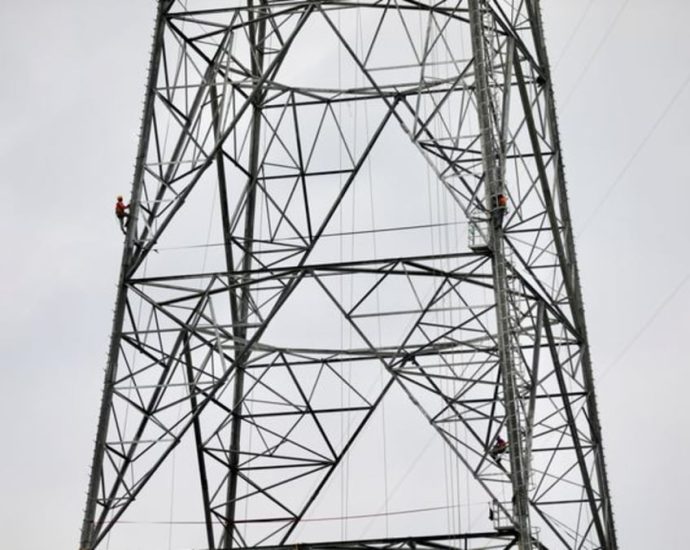Cases surge by 4% from last week

DDC urges people to get booster shots
Covid-19 caseloads have increased by 4% from last week, reaching a daily average of 440 cases, according to the Department of Disease Control (DDC).
The DDC also urged people to get a booster shot, especially children who have not been vaccinated.
The number of Covid-19 inpatients rose last week while health authorities encouraged vaccination for young children.
Dr Tares Krassanairawiwong, the DDC director-general, said that from May 28 to June 3, there were 3,085 Covid-19 inpatients, up 4% from the previous week.
On average, there were about 440 Covid-19 inpatients a day last week, up from 424 a day in the previous week.
However, the number of inpatients with lung inflammation dropped to 386 last week from 425 the previous week. Among them, 243 were hooked on life support a day last week, down from 253 daily in the week before.
Meanwhile, Covid-19 fatalities have risen. Last week there were 68 new fatalities, up by 62% from 42 in the previous week.
Dr Tares said that elderly people, those with underlying diseases and pregnant women formed 97% of the new deaths, and they were under-vaccinated against Covid-19.
He encouraged people to receive annual vaccinations to prevent serious illness, hospitalisation and death from the virus. He said this year, children aged less than one had the highest rate of Covid-19, followed by those aged 70 years old and over.
Dr Tares recommended parents promptly bring young children for Covid-19 vaccination. He said there were fewer undesirable symptoms among the young than among older children, and the Covid-19 vaccine has proven internationally to be very safe for recipients.
There may be a fever in most Covid-19 sufferers for a few days, although no severe or dangerous symptoms were detected in young vaccine recipients.
It is advisable that children get a Covid-19 vaccine and basic immunisation against other diseases, he said.
Man blasts ONCB for selling car after probe

A Lao man is petitioning the Justice Ministry against the Office of the Narcotics Control Board (ONCB) for selling his car, which the agency had impounded as part of prosecution efforts against him on a drug offence, even though the court eventually dropped the charge.
Mai Wongwiangkham, 55, sought legal help from lawyer Ratchaphol Sirisakhon after the drug charge against him was dropped by the Criminal Court.
The ONCB charged Mr Mai, a Lao tour guide, with possessing 14kg of heroin that he was accused of bringing into the kingdom while driving to Nong Khai to pick up Thai tourists bound for Laos in 2016.
Mr Mai, who protested his innocence, was detained at Klongprem Central Prison for three years until the Criminal Court dropped the charge against him, a decision also upheld by the Appeal Court.
The court also ordered that the ONCB return his Chery sedan, valued at about 350,000 baht, which the agency impounded during the investigation. Mr Mai said he owned the car outright.
However, after his release from prison, he was told the agency had sold his car for 20,000 baht.
Outraged, Mr Mai said the sale was unbelievable. He insisted the ONCB had no right to put his car up for sale when the court had cleared him of the legal charge. He did not accept the 20,000 baht and turned to Mr Ratchaphol for legal assistance.
“I’ve done nothing wrong. It makes no sense that I should lose anything that belongs to me, and no one is taking any responsibility for what happened to me,” he said. “It’s plainly unfair.”
Mr Ratchaphol said he would take Mr Mai to the Justice Ministry today to petition against the car sale order. The issue, he added, has caused his client distress and tarnished the country’s image.
Easier entry for Malaysians urged
Travel chiefs want to tap into tour buses

PHATTHALUNG: The tourism association in 14 southern provinces is calling on the Transport Ministry to ease its regulations to allow tour buses from Malaysia to travel beyond the border province of Songkhla to other southern provinces.
The easing of the regulation would enable authorities to stimulate the region’s economy through promotional campaigns, according to those involved in a recent forum on tourism organised by the National Economic and Social Development Council (NESDC).
Jarun Kaewjeesub, president of the Phatthalung Tourism Association, said participants had agreed that they needed more Malaysian tourists to visit the southern border area. More relaxed entrance rules to allow Malaysian visitors entering Songkhla to travel deeper into other southern provinces would help spread the visitors out to other areas.
The forum also decided to draft a request to be submitted to the director-general of the Department of Land Transport, asking that Malaysian visitors be allowed to visit all 14 southern provinces by tour bus.
Finally, the forum noted that the restriction covered tourists from Singapore and Indonesia too.
Hatyai Songkhla Hotels Association president Sitthiphong Sitthiphatprapha said that at least two million tourists are expected to visit Songkhla using land transport this year, which is higher than the 800,000–900,000 last year.
In April, Songchai Mungprasithichai, president of the Songkhla Tourism Promotion Association, said Hat Yai district, the commercial heart of the lower southern region in Songkhla, was the top destination for Malaysian tourists who want food-related experiences.
Most of them enter via the Sadao immigration checkpoint and likely choose Hat Yai as their weekend destination on a regular basis. The majority, or around 70%, were tour groups, he added.
Mr Songchai said the average occupancy rate should reach 70-80% during Malaysia’s school holidays.
However, the province has realised it has been overly dependent on Malaysian tourists, and it would attract relatively less demand from local visitors due to high domestic travel costs.
Mr Songchai said the new government and local administrator should help to tackle high airfares and create tourist attractions in the city.
King sends sympathies to India

His Majesty King Maha Vajiralongkorn Phra Vajiraklaochaoyuhua has sent a message of condolence to Indian President Droupadi Murmu about the recent rail tragedy that killed over 270 people on Friday.
“Queen Suthida and I are shocked and deeply saddened by the catastrophic collision of trains in Balasore, State of Odisha, claiming untold hundreds of fatalities with the number of injured nearing a thousand,” the message said.
“Our thoughts and prayers are with the victims and their families,” the King said.
“We wish to convey, on behalf of the people of Thailand, our sincere condolences and sympathy to Your Excellency, to the people of India and especially, through you, to all those suffering bereavements and painful ordeals from this tragic disaster.”
Cops nab 6 over bogus foreign tours

SURAT THANI: The Provincial Police have arrested six people from a travel agency for fraud after they allegedly sold bogus overseas package tours to at least 99 people, causing damage worth 27 million baht.
Tourist Police Bureau Division 3 commander, Pol Maj Gen Krit Warit, said Sumontri Sonnong, Phanuda Thepchum, Kobsak Pensawat, and Wongchan Pensawat, along with two unidentified staff members, were all arrested on June 4.
They were later charged with fraud and inputting fake data into a computer system. They denied the charges.
Surat Thani Provincial Police chief, Pol Maj Gen Saranyu Chamnanrat, said the suspects legally registered their travel agency in 2022 to provide tour packages; however, they sold fake package tours.
He said the company advertised very cheap package tours to many popular overseas destinations, such as Japan, the Netherlands, and five Central European countries: Austria, the Czech Republic, Slovakia, Germany, and Hungary.
These packages were sold on their Facebook page and were much cheaper than the packages being offered by other tour agents, the provincial police chief said.
The agency claimed it could offer low prices because it was sponsored by the Tourism Authority of Thailand (TAT), which was a lie, he added.
Victims purchased tours and later learnt that they were cheated on the day of departure.
The suspects are all aged between 40-60 years old and are natives of Phun Phin, Ban Ta Khun and Kanchanadit districts.
According to Pol Maj Gen Saranyu, at least 99 victims have filed complaints with the Surat Thani Provincial Police Division or at the Kanchanadit Police Station, claiming damages totalling about 25.8 million baht.
Brazil’s Lula unveils plan to stop deforestation in Amazon by 2030
BRASILIA: Brazil’s government on Monday (Jun 5) unveiled how it plans to meet a pledge to eliminate deforestation in the Amazon by 2030, using strengthened law enforcement against environmental crimes and other measures in the world’s largest tropical rainforest. Under former right-wing President Jair Bolsonaro, Brazil joined a 2021 pactContinue Reading
Elon Musk says China will initiate AI regulations
Musk departed Shanghai on Thursday, wrapping up a two-day trip to China in which he met senior Chinese government officials including the highest-ranking vice premier. Musk met with China’s foreign, commerce and industry ministers in Beijing. He also met with Chinese Vice Premier Ding Xuexiang on Wednesday, a source familiarContinue Reading
Chinese âidolâ superfans are nationalist activists
Thanks to the efforts of their fans, artists such as the South Korean band BTS have their faces everywhere in China (where they are known as “idols”) – from the subway to media articles and brand collaborations.
In 2016, Chinese fans of Jackson Yee (aka Yi Yangqianxi), a former member of the popular Chinese boy band TFBoys, celebrated their idol’s birthday in style. They partied on a cruise in Shanghai, bought a video ad in Times Square and flew cake-shaped hot air balloons over London and New York.

As in other East Asian countries, idol fans in China are changing from passive consumers of products to promoters, striving to personally grow their idols’ popularity, reputation and business value. This development added an estimated ¥100 billion (£613 million) to the Chinese idol market in 2020.
Research in 2015 and 2018 found that Chinese idol fans now also act as one of the main digital forces in cyber nationalist activism, supporting the Chinese state’s core values, such as positive energy and patriotism.
In a paper published earlier this year my coauthor Ting Luo and I analyzed the ways idol fans co-opted nationalism in their reaction to the Covid pandemic.
We looked at over six million posts about the pandemic from December 2019 to December 2020 on Sina Weibo (a Twitter-like social media platform in China) that contained promotional messages about idols. Through in-depth interviews with idol fans, we unpacked the ways they engaged with mainstream discourse to publicize and glorify their idols.
These nationalist expressions are often triggered by political incidents and events. The most notable example is the “Diba Expedition.” Following the Taiwan election in 2016, fans organized to swamp the Facebook pages of Taiwanese politicians with emojis and memes, for example.
Idol fans are both organized and disciplined. Our evidence shows that they also used discussions around the Covid pandemic to promote their idols.
How the pandemic influenced fan behavior
In Weibo posts, idol fans argued that albums, songs and films by their idols related to the pandemic. Many claimed to have made contributions to pandemic efforts and engaged in charity work in the names of their idols.
These activities are typical of the chart-beating behaviors of fandoms, carried out to boost the popularity of their idols.

Idol fans examined in our study and others understand the logic of celebrity ranking lists on Weibo. This is when artists need enough posts, reposts and likes to be on the trending page, upping their profile among the wider public. Fans commonly post and comment on Weibo to create positive images of their idols.
The public images these fans have built are also nationalist. Idols are seen as role models, who make positive contributions to society, even in difficult times. In idol fans’ social media expressions of national pride and compliance to state rules during the pandemic, they posited their idols as loyal to the nation, the people and the party state.
As one fan told us:
We want to make our idol appear as a high-class artist. To achieve the goal, we need evidence of our idol being invited for and participating in performances/shows by the official media or the state. [Without recognition from the state] no matter how well an idol’s album sells, people would consider the idol no more than an online influencer.
Idol fans often interpret “nationalism” as loyalty to national identity and adherence to the state’s policies and rules. Many of them deliberately demonstrate this understanding in their fan posts on social media. For example, idol fans actively joined the state-directed campaign on China’s National Mourning Day and expressed national pride while quoting their idols in the posts.
They also purposefully respond to political and social events as a way to promote their idols’ nationalist ideals, as shown in the chart below tracking fan posts during the Covid pandemic. (Author provided. No reuse).

‘Nationalist’ posts about idols
In addition to commercial strategies such as subway advertisements, music streaming and crowdfunding, these fans see participation in events organized by the state and official media as recognition by the state.
Such “official stamps” can bring both material benefits and political status and reputation for their idols, ultimately boosting their popularity.
Our research has shown that idol fans engage not only the commercial logic common in Japanese and Korean K-pop/idol culture (more publicity brings more commercial value) but also the political logic propagated by the state in China (more “official stamps” bring more political value and commercial value in return).
The skillful deployment of nationalism strategies in their everyday life prepares idol fans, so that the mantra of “love for idols” can quickly transform into “love for the state.”
Yan Wang is a lecturer in digital sociology at Lancaster University.
This article is republished from The Conversation under a Creative Commons license. Read the original article.
Life and death choices at India train crash hospital
BALASORE, India: When India saw its worst train crash in decades, the nearest state-run hospital was transformed into a scene of desperation – and critical decisions. Every few moments, another cacophony of ambulance sirens outside the Fakir Mohan Medical College and Hospital announced the delivery of more patients, many ofContinue Reading
Cash-strapped Bangladesh shuts power plant as heatwave hits
DHAKA: Cash-strapped Bangladesh shut its biggest power plant on Monday (Jun 5) because it was unable to afford the coal to fuel it, as a sweltering heatwave creates surging electricity demand. The 1,320-megawatt government-run Payra Power Plant in southern Bangladesh had already slashed production last month due to fuel shortages,Continue Reading

